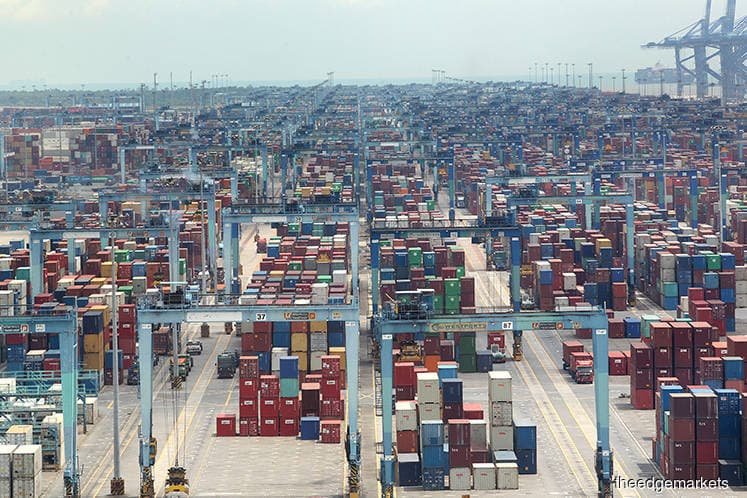
“But at the moment, we don’t see an extreme deceleration in Malaysian exports, partly because of some of the recovery seen in the Chinese economy.” — Alan Tan, AffinHwang Research chief economist.
KUALA LUMPUR (June 30): Malaysia’s high reliance on external demand may pose further pressure to the economic contraction expected in 2020, in anticipation of slower recovery in exports than initially anticipated.
The negative growth in Malaysian exports could extend into the third quarter of 2020, said AffinHwang Research chief economist Alan Tan, following the wider-than-expected contraction in May.
“To see May numbers contract by 25.5% indicates that the global supply disruption has impacted demand for Malaysian products,” said Tan during AffinHwang Capital Research’s Malaysia 2H20 outlook briefing today.
Tan referred to the the International Monetary Fund’s (IMF) June 24 downgrade on 2020 global gross domestic product (GDP) contraction by another 1.9% from the initial 3% for a total of 4.9%.
“We note that Malaysia’s economic stimulus package [Prihatin and Penjana] will add 3.4% to Malaysia’s GDP growth in 2020.
“But while domestic environment may recover, we caution that the swing factor will be external environment,” said Tan.
“Therefore, the negative growth in Malaysian exports may extend for a little while, possibly into 3Q and also in 4Q and that will drag the domestic economy,” he added.
The research house has projected Malaysian exports to contract by 8.8% in the whole of 2020, accompanied by a contraction in imports by 7.5%.
It has maintained its end-March forecast of 3.5% real GDP contraction for the country.
“The IMF downgrade much reflected the US economy, where GDP contraction is now expected at 8% or deeper than the initial projection of 5.9% that was published in April.
“But at the moment, we don’t see an extreme deceleration in Malaysian exports, partly because of some of the recovery seen in the Chinese economy,” said Tan, referring to the second monthly growth in exports to China by 4.5% in May.
Malaysian exports fell 25.5% year-on-year (y-o-y) in May to RM62.7 billion, representing a wider drop from April and the steepest in 11 years.
For the first five months of 2020, the nation’s exports fell 9.7% y-o-y to RM366.16 billion from RM405.35 billion recorded for the same period of last year.
Expansionary Budget 2021 expected
To continue supporting the Malaysian economy, Tan also expects the government to continue on its expansionary path when formulating Budget 2021, which will be announced in November.
This is as he expects the government to be able to maintain its self-imposed debt ceiling target of 55% of Malaysia’s GDP, and the expectation that the government is in no rush to reduce its fiscal deficit.
“Finance Minister [Tengku Zafrul Tengku Abdul Aziz] has guided that the government is committed to lowering fiscal deficit position back to 4% of GDP, but it will be done over the next three to four years,” said Tan.
“The fact is that this Covid-19 situation is not going to go away.
“The minister understands that the coming Budget 2021 will still have to be expansionary to support the domestic economy, perhaps through continuation of development expenditure [roll-out] and perhaps cash assistance to the households,” he said.
Tan also opined that the absence of immediate pressure to bring down fiscal deficit position suggests that the government will not re-introduce goods and services tax or to introduce consumption tax in order to fund the spending.
The government expects Malaysia’s 2020 fiscal deficit to be at a range of 5.8% to 6%, following the implementation of the RM250 billion economic stimulus packages, of which RM45 billion is direct fiscal injection from the government.
Last week, the IMF revised downwards Malaysia’s 2020 GDP contraction forecast to 3.8%, from 1.7% initially projected.